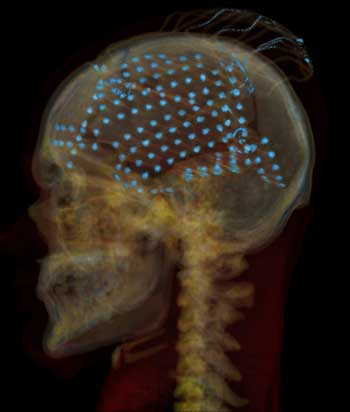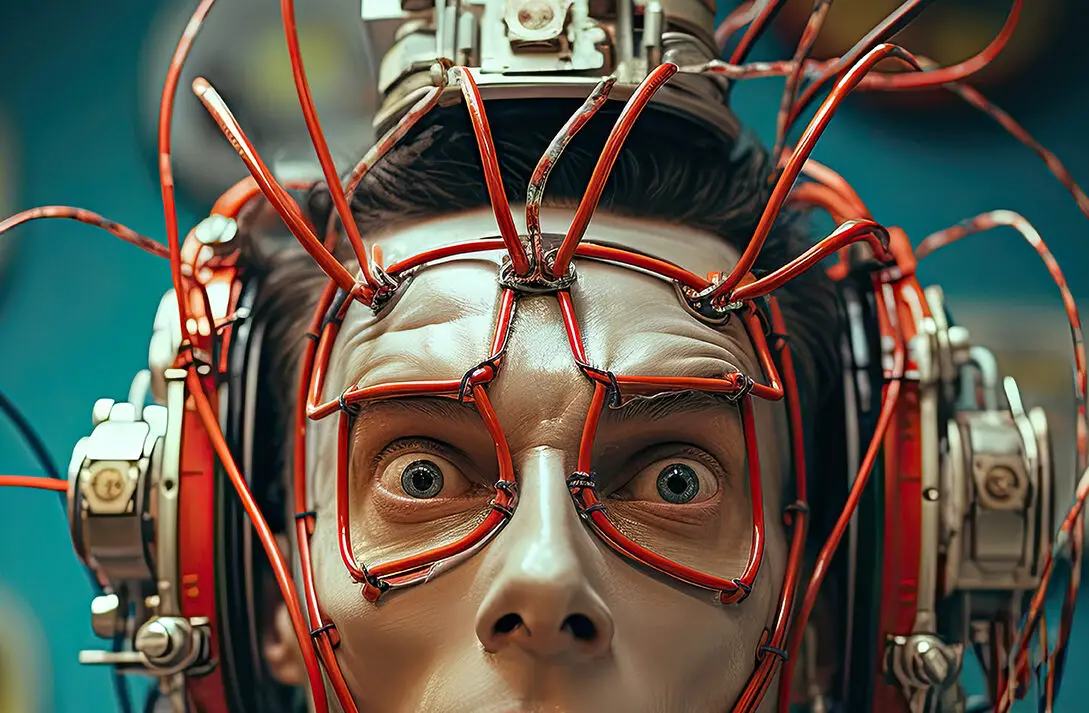Discover the groundbreaking development of mind-reading technology, its potential benefits for communication and healthcare, and the ethical concerns it raises. Explore the implications of this technology for privacy, security, and potential misuse. Join the conversation about the responsible development and implementation of mind-reading technology.
In a groundbreaking development, scientists at the University of California, Berkeley, have developed a device that can read people’s minds. The device, which is still in its early stages of development, uses a combination of EEG sensors and machine learning to decode brain activity and translate it into text.
The scientists say that the device has the potential to revolutionize the way we communicate, especially for people with disabilities. It could also have a number of other applications, such as controlling computers with the mind and developing new forms of entertainment.
However, the development of mind-reading technology also raises a number of ethical concerns. For example, who would have access to the data collected by the device? How would the data be used? And what steps would be taken to protect the privacy of users?
In this article, we will explore the potential benefits and ethical concerns of mind-reading technology in more detail. We will also discuss some of the ways in which this technology could be used in the future.
Potential Benefits of Mind-Reading Technology
One of the most promising potential benefits of mind-reading technology is that it could help people with disabilities communicate more effectively. For example, people who are paralyzed or who have lost their ability to speak could use mind-reading devices to communicate with others. Mind-reading devices could also be used to help people with autism spectrum disorder, who often have difficulty communicating with others.
In addition to helping people with disabilities, mind-reading technology could also have a number of other potential benefits. For example, it could be used to:
- Control computers and other devices with the mind.
- Develop new types of video games and other forms of entertainment.
- Help people to learn new languages more easily.
- Improve the diagnosis and treatment of certain neurological disorders.
- Conduct research on human cognition and consciousness.
Ethical Concerns
While mind-reading technology has the potential to offer a number of benefits, it also raises a number of ethical concerns. Some of the key ethical concerns include:
- Privacy: If mind-reading devices are widely adopted, it is important to consider who would have access to the data collected by these devices. Would the data be collected by companies, governments, or both? How would the data be used? And what steps would be taken to protect the privacy of users?
- Security: If mind-reading devices are not properly secured, they could be hacked and used to steal sensitive information from people’s minds. It is important to develop robust security measures to protect mind-reading devices from hacking.
- Misuse: Mind-reading devices could be misused in a number of ways. For example, they could be used to spy on people, manipulate people, or even control people’s minds. It is important to develop safeguards to prevent the misuse of mind-reading technology.

Photo taken from the telegraph.
How Mind-Reading Technology Could Be Used in the Future
Mind-reading technology is still in its early stages of development, but it has the potential to be used in a number of ways in the future. Some potential applications include:
- Communication: Mind-reading devices could be used to help people with disabilities communicate more effectively. They could also be used to develop new forms of communication, such as telepathy.
- Education: Mind-reading devices could be used to help students learn more effectively. For example, they could be used to track student comprehension and provide real-time feedback.
- Gaming and entertainment: Mind-reading devices could be used to develop new types of video games and other forms of entertainment. For example, they could be used to create immersive virtual reality experiences.
- Healthcare: Mind-reading devices could be used to improve the diagnosis and treatment of certain neurological disorders. They could also be used to develop new types of therapies for mental health disorders.
- Research: Mind-reading devices could be used to conduct research on human cognition and consciousness. This research could help us to better understand how the mind works and how to treat a variety of neurological disorders.
Conclusion
The development of mind-reading technology is a major breakthrough with the potential to revolutionize many aspects of our lives. However, it is important to be aware of the potential ethical concerns associated with this technology. We need to have a public conversation about these ethical issues before mind-reading technology is widely adopted. We also need to develop clear guidelines and regulations to ensure that mind-reading technology is used in a responsible and ethical manner.
Overall, mind-reading technology has the potential to offer a number of benefits, but it is important to be aware of the potential ethical concerns. By addressing these ethical concerns, we can ensure that mind-reading technology is developed and utilized in a way that benefits society while respecting individual privacy, security, and human rights.




